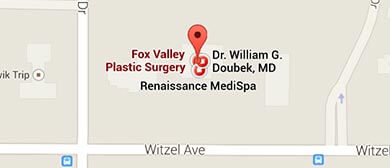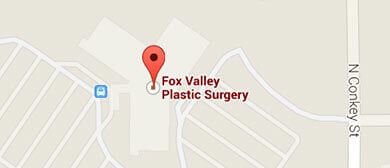 We know that you’ve been preparing for your surgery by saving your money, clearing your schedule, doing your research. But one of the most important items on your to-do list should be preparing your body for the stress of plastic surgery – and that means that you must stop smoking.
We know that you’ve been preparing for your surgery by saving your money, clearing your schedule, doing your research. But one of the most important items on your to-do list should be preparing your body for the stress of plastic surgery – and that means that you must stop smoking.
Smokers are always at high risk for health troubles, but particularly so during and after surgery. People who smoke have three times the complications (18% vs 53%) and a four fold increase in revision surgery (4% vs 15%). Wound-related healing complications increase from 5% to 31% with smoking. Smokers face longer healing times, blood clots, wounds that break open, and greater risk of infection.
Who is a Smoker?
In addition to actual cigarette smokers, patients who are exposed to secondhand smoke or who use e-cigarettes fall into the smoker category. Vaporizers do not decrease the amount of nicotine in tobacco, only the amount of smoke generated. Patches also contain nicotine. While there is no nicotine in marijuana, most joints are rolled with a marijuana and tobacco combination.
Why Stop Smoking?
Blood flow to tissues is always a great concern during any surgical procedure because decreased blood flow can produce dangerous complications. Blood flow to tissue may be compromised with incisions and dissection. This effect is typically controllable, but when coupled with nicotine – a vasoconstrictor which decreases blood flow – reduced blood flow may result in a healing complication.
In a breast augmentation, liposuction, or blepharoplasty, the risk of blood flow compromise is lower because the incisions are smaller. However, in a breast lift or tummy tuck, there are much longer incisions and more dissection. The decrease in blood flow to the tissues, combined with the constricting effects of nicotine, can cause parts of the breast, nipple, or abdominal tissue to die. This complication also applies to breast reconstruction, breast reduction, and facelift surgeries.
 In addition, both tobacco smoke and marijuana smoke contain carbon monoxide, which decreases the oxygen carrying capacity of hemoglobin in the blood. This is different from the vasoconstrictor effect, but produces the same risk of tissue death in surgeries that decrease the blood flow to tissues. Edible forms of marijuana do not have smoke or carbon monoxide poisoning; however, marijuana can have adverse interactions with certain anesthetic drugs. It is important to tell the anesthesiologist about marijuana use.
In addition, both tobacco smoke and marijuana smoke contain carbon monoxide, which decreases the oxygen carrying capacity of hemoglobin in the blood. This is different from the vasoconstrictor effect, but produces the same risk of tissue death in surgeries that decrease the blood flow to tissues. Edible forms of marijuana do not have smoke or carbon monoxide poisoning; however, marijuana can have adverse interactions with certain anesthetic drugs. It is important to tell the anesthesiologist about marijuana use.
Finally, both tobacco and marijuana smoke disrupt the lining of the lungs and bronchi, and can lead to coughing episodes. Coughing episodes can cause bleeding after surgery, which produce hematomas and other complications.
You should stop smoking tobacco and marijuana a month before surgery. You could quit a week before surgery, but it takes two weeks for cotinine (the predominant metabolite of nicotine) to clear the system.
Cotinine Testing
For certain surgeries, Fox Valley Plastic Surgery requires its patients to stop smoking one month before surgery, and a minimum of one month after surgery or after the surgical wound has healed – whichever is longer. FVPS will alert these patients that they will need to take a cotinine test at their pre-operative appointment, which normally occurs two days before surgery.
 Nicotine replacement therapies (e.g., gum, lozenge, patch, inhaler, and nasal spray) used to help tobacco users quit, also contain nicotine. Use of nicotine replacement therapy will result in a positive test for cotinine, so these therapies will need to be stopped at least two weeks before the cotinine test. Surgeries will be cancelled for test results which come back positive, and patients will lose their 10% booking fee. Therefore, it is critical that patients follow the physician’s rule regarding the cessation of smoking.
Nicotine replacement therapies (e.g., gum, lozenge, patch, inhaler, and nasal spray) used to help tobacco users quit, also contain nicotine. Use of nicotine replacement therapy will result in a positive test for cotinine, so these therapies will need to be stopped at least two weeks before the cotinine test. Surgeries will be cancelled for test results which come back positive, and patients will lose their 10% booking fee. Therefore, it is critical that patients follow the physician’s rule regarding the cessation of smoking.
This strict rule is for the benefit of the patients. Undergoing surgery always entails some risks, and it is the physician’s duty to minimize these risks and to strive for the best possible outcome. While it is difficult to stop smoking, the long-term benefits derived from quitting far outweigh the short-term pleasures of lighting up.


Oshkosh, WI (920) 233-1540